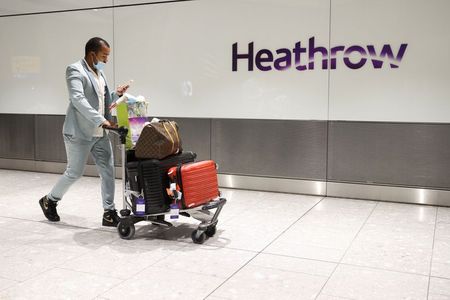Influx of foreigners: Rapid rise in hiring and relocating overseas talent to the UK due to severe shortage of job candidates

A severe shortage of job candidates in the UK is fuelling a rapid rise in the number of British employers seeking out international talent to fill their vacancies and offering them more support in their move to a new country and city.
Relocation platform PerchPeek told City A.M. this morning that it has seen a 327 per cent year-on-year increase in the number of employees using its app to move to the UK in 2021. Since January 2020, the company has helped more than 5,000 people relocate to the UK.
It expects demand for relocations to accelerate further into 2022, with “some of the world’s largest technology, financial and consulting firms” coming to PerchPeek looking for a more cost efficient and personal way to make employee relocation possible, the firm disclosed to City A.M.
“There are record numbers of job openings yet many employers are having a hard time hiring workers,” said Paul Bennett, Co-Founder and CEO of PerchPeek.
Struggling to fill roles
According to Monster, 87 per cent of UK employers are struggling to fill positions as a result of the talent gap.
“The UK jobs market has bounced back despite a turbulent couple of years but the demand for roles, especially in technology, is far outweighing supply in the UK,” said Oli Monks, programme lead at Tech Nation.
In fact, accessing talent remains one of the biggest challenges for the nation’s tech scale-ups, according to 36 per cent of Tech Nation’s cohort companies.
“This is driving an enormous need and interest among progressive companies in attracting talented workers from around the world to the UK. But they need to be able to offer a competitive benefits package to support and incentivise them in what is undoubtedly a big move,” Monks added.
“Employers are finding ways to source and attract foreign talent which, for companies like Impala Travel and INEOS, has meant enticing them to move around the world,” Bennett said in agreement.
“However, employee relocation is usually a complicated and expensive operation – not to mention stressful – and is one of the reasons why rates of expatriate failure are between 10 and 50 per cent,” he added.
There are 20 to 30 processes involved in one relocation – from finding a home and setting up a bank account through to shipping belongings – and these are often managed across various platforms and by using archaic communication methods such as multiple email threads, PDF attachments and phone calls, Bennett explained.
“It can be a truly awful experience for employees. Packages are inflexible and expensive, costing companies thousands of pounds, plus tailored support is usually only accessible to the most senior people in a company.”
An alternative and rising trend is for employers to give their employee a lump sum figure – so they can go and figure the relocation out themselves – but this only leaves them “feeling stressed and abandoned which leads to a lot of extra challenges for HR leaders,” Bennett pointed out.